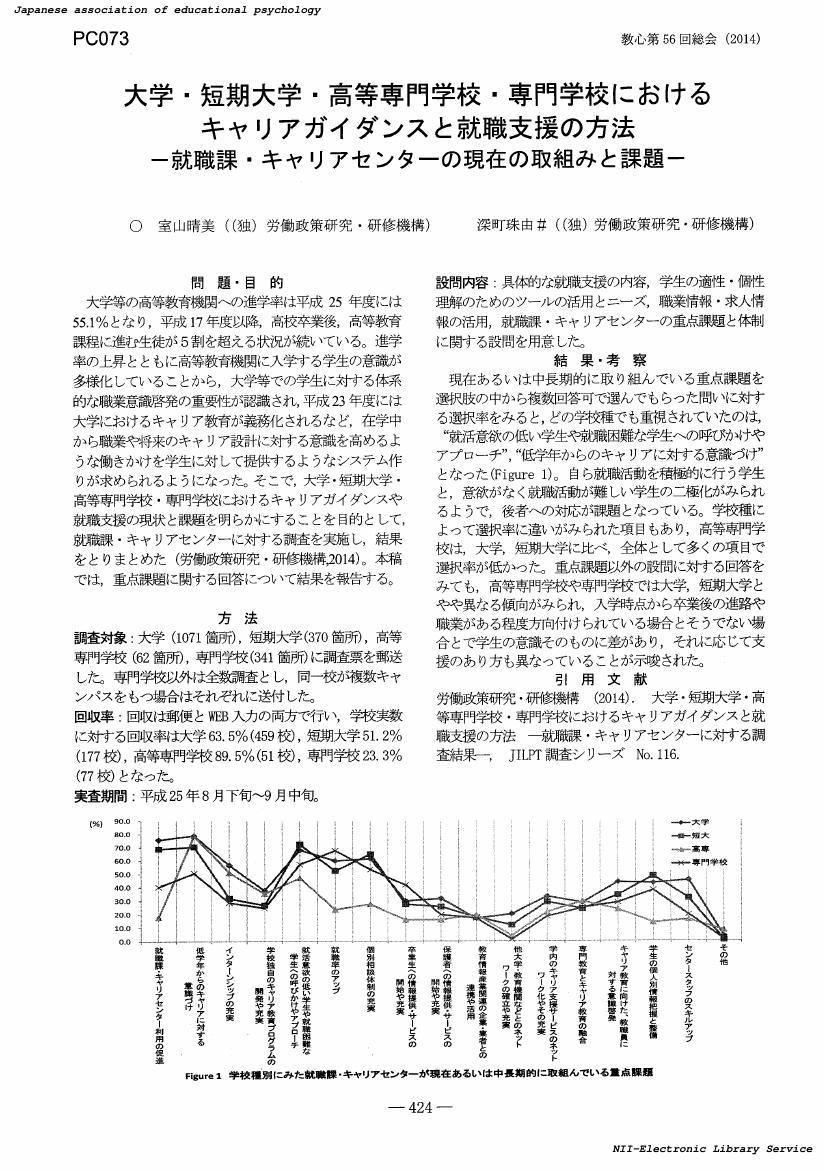2 0 0 0 OA “ライバル”として記述される対人関係に関する一考察
- 著者
- 室山 晴美
- 出版者
- 公益社団法人 日本心理学会
- 雑誌
- 心理学研究 (ISSN:00215236)
- 巻号頁・発行日
- vol.65, no.6, pp.454-462, 1995-02-20 (Released:2010-07-16)
- 参考文献数
- 10
- 被引用文献数
- 3 2
The first purpose of this study was to examine and define rivalry as a form of interpersonal relationship. The second was to investigate what factors most affected the interpersonal attraction between rivals. University students were indiviaually interviewed and asked whether or not they had any current or past rivals. If they had any, they were then asked to describe some aspects of their rivalry, such as the situation in which it occurred, its outcomes, the feelings toward the rival, and its effects on their and rivals' behavior. Results showed that rivals were frequently described as competitive partners sharing the same goal, having similar abilities, and affecting each other in positive ways. According to the level of attraction between the rivals, rivalry was categorized into four types: task-oriented, opponent, fellow, and good-friend. In relation to the four rivalry types, three aspects of competition were examined: equal versus unequal, onesided versus mutual, and result-oriented versus person-oriented.
- 著者
- 室山 晴美 堀野 緑
- 出版者
- 日本教育心理学会
- 雑誌
- 教育心理学研究 (ISSN:00215015)
- 巻号頁・発行日
- vol.39, no.3, pp.298-307, 1991
The purpose of this study was to examine the factors affecting the losers' task cognition and the person cognition in a competitive situation. Two factors, the patterns of loss and winners' feedbacks to losers, were examined. The 2 x 2 experimental conditions were set. For the patterns of loss condition, winning a straight victory and winning a losing game were contained, and a positive and a negative feedbacks were contained for winners' feedbacks to losers. The subjects were 44 female university and graduate students participating in the othello game, in pairs. One of the pairs being an experimental assistant, subjects lost two games in all of three games. After each game was over, the manipulation of winners' feedback was done and then subjects were asked their evaluation about the task and the opponent in a questionnaire. The main results were as follows: 1) The pattern of loss affected both the task cognition and the person cognition as a partner of the game. 2) The winner's feedback affected the formation of the cognition for the partner's personal attraction and attitude.
- 著者
- 室山 晴美 深町 珠由
- 出版者
- 一般社団法人 日本教育心理学会
- 雑誌
- 日本教育心理学会総会発表論文集 第56回総会発表論文集 (ISSN:21895538)
- 巻号頁・発行日
- pp.424, 2014-10-26 (Released:2017-03-30)
